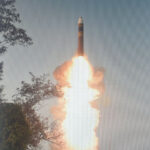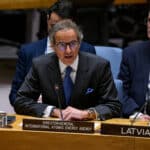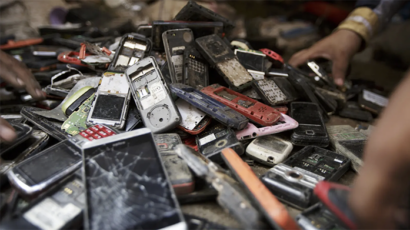How to bridge the gender gap in arms control and disarmament
By Renata H. Dalaqua | May 1, 2019
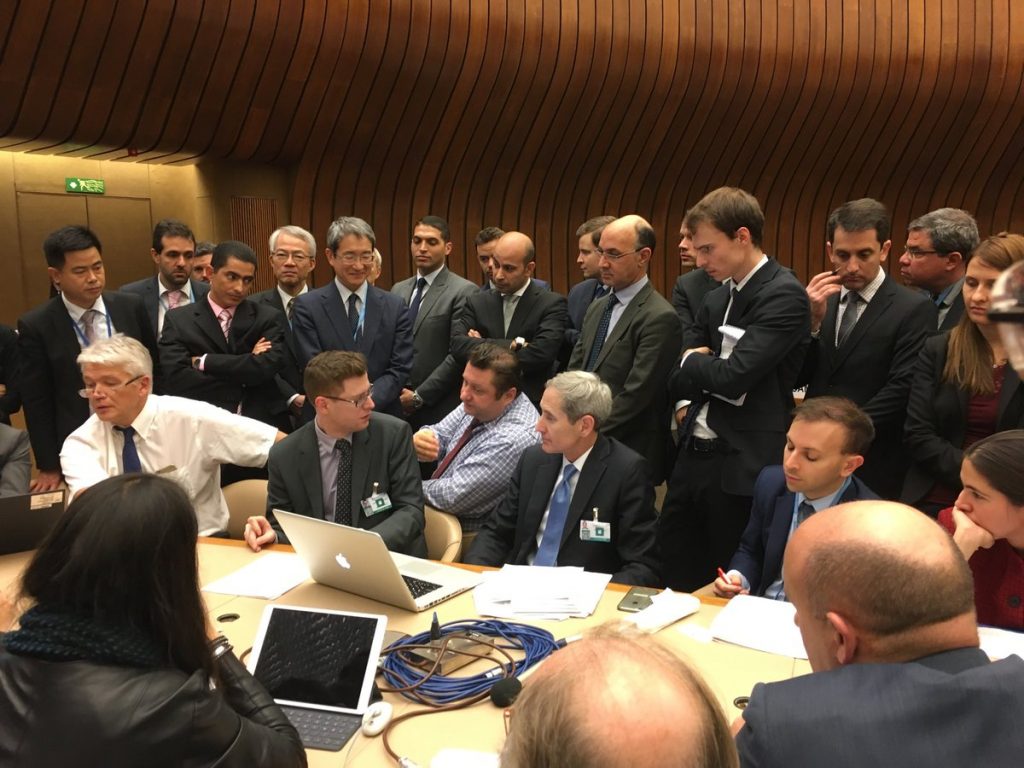
“If you were the head of your foreign ministry, what would you do to achieve gender parity in your delegations?” That’s a question my colleagues and I put to diplomats and multilateral practitioners during focus-group discussions organized by the United Nations Institute for Disarmament Research (UNIDIR) as part of a research project studying gender balance. In total, 50 individuals attended the meetings in New York, Geneva, and Vienna. They included diplomats from 28 countries and one intergovernmental organization, professionals from five international organizations, and four representatives of civil society and academia.
Women have long been excluded from arms control, the military, and diplomacy. After analyzing patterns and discussing the numbers related to men’s and women’s participation in arms control and disarmament, the UNIDIR research team asked diplomats what could be done to bridge the gender gap in this male-dominated area of diplomacy.
It became evident, in the course of the research, that people hold different views on the relevance of gender equality to arms control and disarmament. Although it is possible to approach this issue from various perspectives, we must remember this is a question of fairness and justice. Women, as well as men, have the right to take part in decisions that affect their lives.
Here are five useful proposals to improve women’s participation in arms control and disarmament:
Identify national patterns and establish objectives. Surveying 84 multilateral meetings, UNIDIR identified several overall patterns and trends in arms control and disarmament diplomacy:
- When states can only send a single representative, they almost always send a man. Women are typically included as the second or, more often, third or fourth member of their delegations.
- Women comprise only a third of the diplomats accredited to arms control and disarmament forums.
- In smaller, more specialized forums, the average proportion of women drops to just 20%.
States that are interested in promoting gender equality in their national delegations would benefit from collecting their own data and conducting a baseline assessment. After identifying their national patterns and understanding their specific needs, states could then set objectives and directives to improve women’s participation at the national level—for example, by giving priority to women in one-person delegations. This type of commitment could actively promote women’s participation, rather than simply adding women to delegations.
We heard positive accounts from diplomats of states that have established gender parity targets. In their view, these top-down decisions made people more aware of gender imbalances and provided civil servants with practical guidelines to address asymmetries, leading to a better work environment for women and men.
Promote inclusive leadership. When it comes to leadership positions, gender imbalance is even more pronounced. UNIDIR research showed that men are overrepresented as heads of delegations, to an even greater degree than would be expected given the overall proportion of men in a meeting. In 2018, 76% of heads of delegations participating in multilateral disarmament meetings were men—higher than the 66% overall proportion of male delegates in these forums.
In all discussions, diplomats spoke about the importance of role models and mentors who can support and encourage women to take steps that advance their careers in male-dominated environments. The diplomats highlighted initiatives implemented by foreign services, such as leadership strategies and coaching programs.
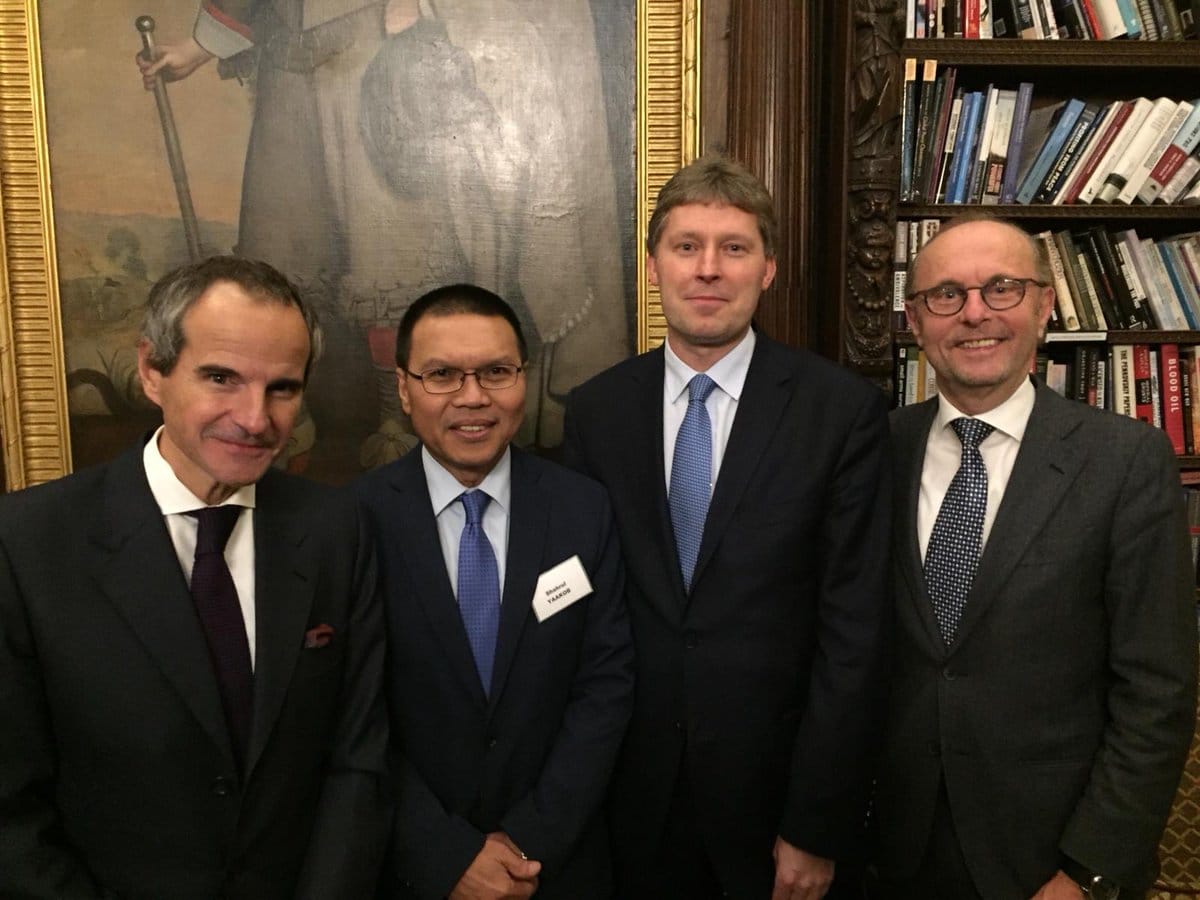
States wishing to improve the quality of women’s participation could design specific initiatives aimed at giving more women speaking roles in negotiations and promoting women in leadership positions. Another option is to have a man and a woman alternate as the head of the delegation.
At the multilateral level, parties to any conference could agree on including gender as a criterion when electing presidents or chairpersons. This would help ensure a gender-balanced organization, featuring both women and men at the highest level.
Make gender considerations part of everyday work. Diplomats told us about individual actions they have taken to integrate gender considerations into their day-to-day work. Some, when reporting to their respective foreign ministries, include information regarding men’s and women’s participation in events, keep track of who gets to speak in meetings, praise gender-balanced committees, adopt a policy of declining invitations to single-sex panels, etc. Others have started to pay attention to language, questioning the use of the masculine form by default and giving preference to titles that reflect inclusion (for example, “chairperson” instead of “chairman”).
It became evident that diplomats can play an active role in fostering gender considerations in diplomacy. In multilateral meetings, they can propose and adopt agenda items that examine gender perspectives on a given policy issue. They can make sure the language used in resolutions is gender-responsive. They can organize gender briefings and support side events on gender at the margins of multilateral meetings.
When acting as president of a meeting or conference, diplomats can work with the secretariat to ensure that women and men working with the presidency are equally represented in support functions. Diplomats can include gender criteria in the sponsorship program for delegations; and they can request the secretariat to collect, track, and publish sex-disaggregated data and statistics on gender balance in delegations, bodies, and panels.
Adjust diplomatic practice to better accommodate family life. One of the issues brought up in all the discussions UNIDIR hosted was the difficulty diplomats have in balancing work with family life, and the toll that long meetings and constant travel can take on relationships. These are issues that affect all individuals, regardless of gender. However, because women tend to shoulder more household responsibilities than men, an unequal division of family tasks can place a heavier burden on women and hold them back in their careers.
In order to better accommodate family life, states could ensure that meeting hours match school schedules. This would entail a certain degree of flexibility, as it would be necessary to adjust schedules in accordance with the local culture. In Geneva, for example, it would make sense to change the time of multilateral meetings, starting earlier than current practice, which is 10 a.m., and finishing by 5 p.m.
Diplomats could also be stricter in keeping negotiations within the agreed hours. If avoiding late-night sessions is not possible, as is sometimes the case in endgame diplomacy, adequate warning should be given. Foreign services could also consider assisting staff with childcare and allowing for shared, gender-neutral parental leave.
Ensure women and men enjoy equal opportunities in recruitment and promotion. During the consultations, some diplomats raised the issue of self-selection, arguing that women often refrain from working in international security, choosing to cover other topics. Other participants said the field of arms control and disarmament has kept women out by rewarding characteristics, expertise, and experience that are more commonly associated with men (such as toughness, seriousness, risk-taking, and military training).
There are complex historic and cultural factors at play in this discussion. Although there is no magic fix for the gaps in gender diversity in arms control and disarmament, foreign services can take proactive steps in recruitment and promotion processes.
In order to improve recruitment, managers can actively reach out to different groups of potential candidates, implementing processes that minimize unconscious bias. Foreign services can ensure that all selection panels and final applicant pools for new positions in the organization are not single-gender.
To promote transparency and encourage all candidates, gender-disaggregated data can be published systematically for all recruitment and promotion rounds, showing the gender breakdown for applications, interviews, and outcomes. In addition, foreign services can adopt policies to help eliminate harassment; introduce mandatory unconscious-bias training for all staff; and support a change of perceptions and behaviors.
The burden of proof. During our research, it became evident that not all diplomats share the view of gender equality as a prerequisite to progress on every front. Many would like to see a stronger case for including women’s voices in arms control and disarmament diplomacy. Women, it would appear, still need to justify their seat at the table.
Participants suggested more research is required to obtain evidence about how participation by women affects negotiations, placing the onus on scholars and experts to prove that the presence of women makes a difference for national and international peace and security. Yet what evidence is there that excluding women makes for better policy outcomes?
We hope that evidence-based arguments will open space for increased participation of women. Ultimately, however, a commitment to gender equality is rooted in rights and justice. Including women is the right thing to do.
Together, we make the world safer.
The Bulletin elevates expert voices above the noise. But as an independent nonprofit organization, our operations depend on the support of readers like you. Help us continue to deliver quality journalism that holds leaders accountable. Your support of our work at any level is important. In return, we promise our coverage will be understandable, influential, vigilant, solution-oriented, and fair-minded. Together we can make a difference.
Keywords: UNIDIR, gender gap
Topics: Chemical Weapons, Nuclear Risk, Nuclear Weapons, Opinion


